Contents
When you think about the many foods high in calcium, most people automatically think, “milk.” However, milk and dairy products are not the only sources of calcium. For example, Sesame is the wealthiest plant or vegan source of calcium, much more prosperous than most cheeses. Also, orange is one of the fresh fruits richest in calcium.

- Chemical composition: Mineral element.
- Sources: Milk and dairy products are well known as the best sources of calcium. However, many plant-based foods provide as much or more calcium as milk: Sesame, blackstrap molasses, almonds, beans, and corn. Cabbage, broccoli, and oranges are also good sources of calcium.
- Absorption: Only 20% to 30% of calcium in foods is absorbed in the intestine, even though at times of rapid growth, pregnancy, or nursing, it may rise to 40%. The rest is lost through feces.
- Facilitators of absorption: vitamin D, proteins in the diet, the lactose in milk, and acidity in the intestinal bolus.
- Inhibitors of absorption: excess phosphorus, as occurs in diets rich in fish and meat; the phytates found in bran, even though the leavening in whole bread causes phytates to disappear partially; oxalates present in rhubarb, spinach, and other green leafy vegetables; excess fat the diet.
Although phytates and oxalates reduce calcium absorption from grains and vegetables, both foods remain valuable sources of calcium. Meat and fish, except sardines, are lacking in calcium.
- Function: Calcium is involved in bone and tooth formation, muscular contraction, nerve impulse transmission, and blood coagulation.
- Calcium deficiency: rickets, osteoporosis.
- Increased need: adolescence, pregnancy, and nursing.
- Calcium loss during the processing of foods: lost only as calcium salts dissolve in the cooking water.
Top 5 Plant-Based Foods High in Calcium
Blackstrap Molasses
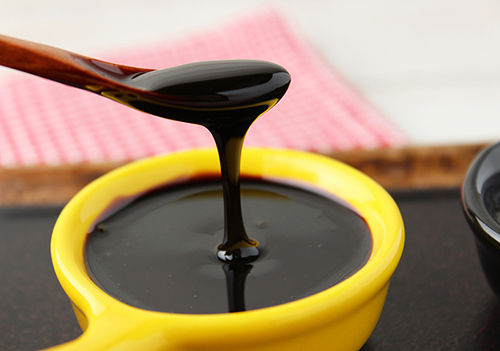
Blackstrap molasses, a byproduct of the sugar cane’s refining process, stands out as a nutritional powerhouse and one of the top foods high in calcium. This thick, dark syrup is made by boiling sugar cane juice multiple times, concentrating its nutrients.
A single tablespoon of blackstrap molasses can provide about 200 milligrams of calcium, approximately 20% of the Recommended Daily Allowance (RDA) for adults. This makes it a great substitute sweetener for people trying to increase their calcium consumption, whether due to dietary limitations or a desire for additional plant-based sources of this mineral. Its rich, robust flavor and nutritional benefits make blackstrap molasses a versatile ingredient in sweet and savory dishes, offering a healthful twist to many recipes.
Sesame Seeds
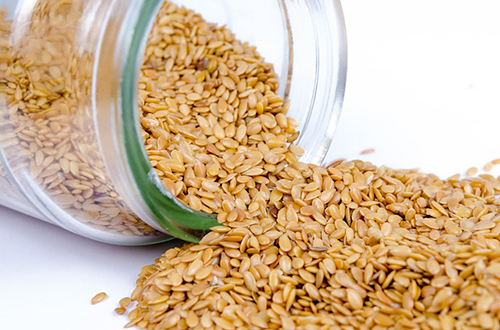
Sesame seeds are another on the list of foods high in calcium, making them a valuable addition to various diets, especially for those seeking non-dairy sources of this essential nutrient. These tiny, oil-rich seeds, derived from the Sesamum indicum plant, are packed with more than just their nutty flavor; they offer an impressive amount of calcium.
For optimal bone health and metabolic function, a daily intake of 88 milligrams of calcium in only one tablespoon of sesame seeds is essential. Beyond their calcium content, sesame seeds are rich in other minerals, vitamins, and antioxidants, supporting overall health and wellness. Their versatility allows them to be easily incorporated into diets, whether sprinkled over salads, baked into breads, or ground into tahini—a paste used in numerous culinary applications. This makes sesame seeds a powerhouse of nutrition and an adaptable ingredient in various dishes, enhancing their flavor and nutritional value.
Carob Flour
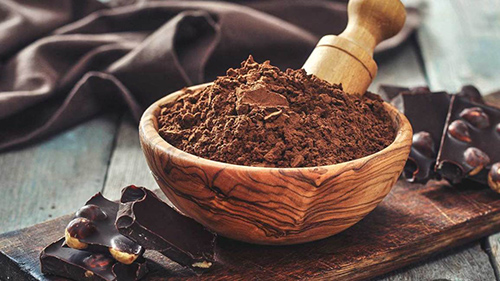
A lesser-known addition to foods high in calcium is carob flour, derived from the dried and ground pods of the carob tree (Ceratonia siliqua), celebrated for its sweet, chocolate-like flavor and notable calcium content. A gluten-free and caffeine-free alternative to cocoa powder, carob flour has a unique flavor and nutritional benefits, making it a popular choice among health-conscious people and those with dietary limitations. Remarkably, carob flour contains an impressive amount of calcium, with just one cup providing approximately 358 milligrams, significantly contributing to the daily recommended calcium intake.
Beyond its calcium richness, carob flour is also a good source of fiber and antioxidants, offering a healthful alternative for baking and cooking. Its natural sweetness reduces added sugars in recipes, enhancing its appeal as a nutritious ingredient in desserts, beverages, and snacks. It offers a wholesome way to enjoy sweet treats while benefiting from its calcium boost.
Soybeans
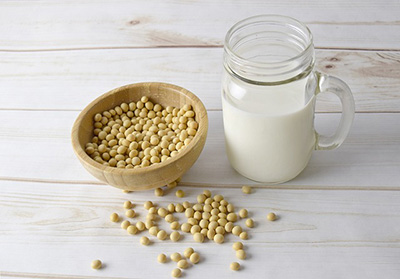
Soybeans stand out in the plant world for their impressive nutritional profile. Mainly, they are among the foods high in calcium, making them an excellent option for those looking to increase their intake of this essential mineral through plant-based sources. Beans, or legumes, are an excellent way to get the protein and calcium you need for strong bones, healthy muscles, and proper nerve transmission.
A cup of cooked soybeans can provide around 175 milligrams of calcium, contributing to about 17.5% of adults’ Recommended Daily Allowance (RDA). Soybeans are a great source of calcium and are suitable for vegans, vegetarians, and anyone who has problems digesting lactose or has allergies to dairy. Beyond calcium, soybeans are loaded with other nutrients, including fiber, vitamins, minerals, and antioxidants, supporting overall health and well-being. Tofu, soy milk, tempeh, and edamame are just a few examples of how versatile these legumes are in the kitchen. They provide taste, texture, and nutrition to a variety of meals.
Almonds
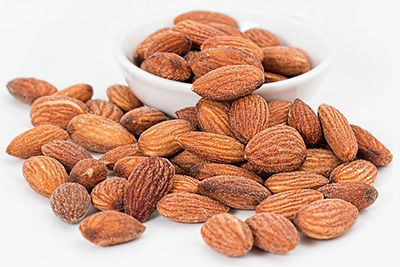
Almonds are highly nutritious nuts renowned for their rich calcium content and other beneficial nutrients. They made the list of foods high in calcium thanks to their excellent source of this mineral, which is essential for strong bones and teeth, healthy muscles, and the transmission of nerve impulses. Just a quarter cup of whole almonds can provide approximately 76 milligrams of calcium, making them a fantastic snack option for those looking to boost their intake of this vital mineral.
Beyond calcium, almonds are also packed with healthy fats, protein, fiber, magnesium, and vitamin E, contributing to cardiovascular health, improved cholesterol levels, and overall wellness. Their ease of incorporation into diets, from being a standalone snack to being added to salads, yogurts, and baked goods, makes almonds an incredibly versatile and healthful addition to any eating plan, particularly for those seeking plant-based sources of calcium and other nutrients.
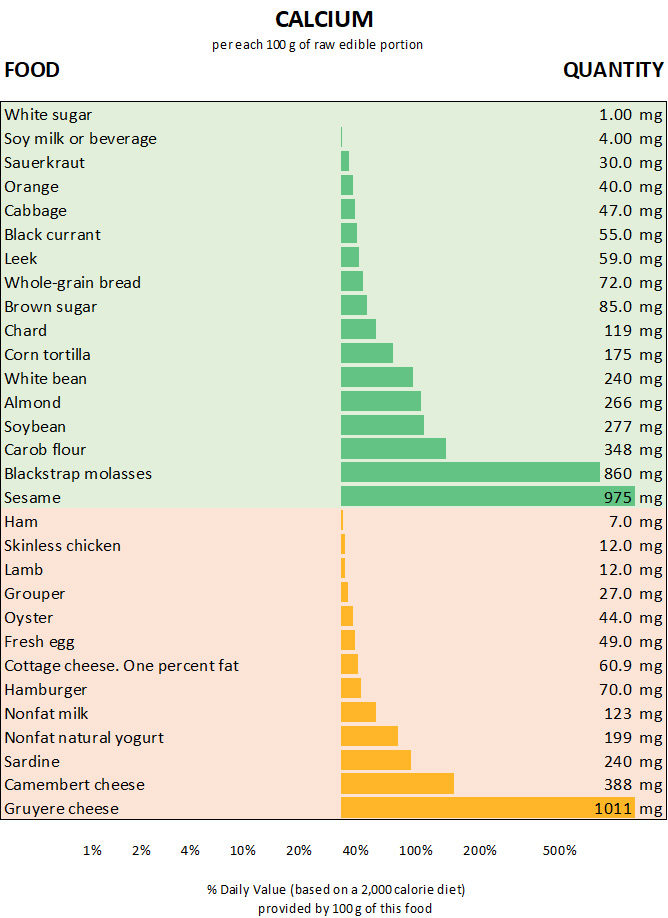
DISCLAIMER: All content on this website is presented solely for educational and informational objectives. You should not rely on the information provided as a replacement for advice, diagnosis, or treatment from a qualified medical expert. If you are pregnant, nursing, or have any preexisting medical concerns, you should talk to your doctor before using any herbal or natural medicines.
REFERENCES
- George D. Pamplona-Roger, M.D. “Encyclopedia of Foods and Their Healing Power.” George D. Pamplona-Roger, M.D. Encyclopedia of Foods and Their Healing Power. Trans. Annette Melgosa. Vol. 1. Chai Wan: Editorial Safeliz, 2005. 398. Print. [ foods high in calcium]
- Non-Dairy Calcium Sources: Messina V, Mangels AR, Devine CM. A new food guide for healthy vegetarians and vegans. J Am Diet Assoc. 2009;109(suppl):716S-31S.
- Protein and Calcium: Bonjour JP. Dietary protein: intake and effects on mineral homeostasis. Am J Clin Nutr. 2004;80(suppl):1052S-6S.
- Dietary Factors Affecting Absorption: Institute of Medicine (US) Standing Committee on the Scientific Evaluation of Dietary Reference Intakes. Dietary Reference Intakes for Calcium, Phosphorus, Magnesium, Vitamin D, and Fluoride. Washington (DC): National Academies Press; 1999.
- Calcium Supplements and Medications: Sweet BH, Brown J. Drug interactions with calcium supplements. Am J Health Syst Pharm. 2001;58:553-6.
- Gut Health and Calcium: Kim MS, et al. Gut microbial community composition is associated with bone mineral density in healthy women. Nutr Res. 2016;36(4):350-7.
- Athletes and Calcium Needs: American College of Sports Medicine, American Dietetic Association, Dietitians of Canada. Nutrition and athletic performance. 5th ed. Indianapolis, IN: American College of Sports Medicine; 2000.
